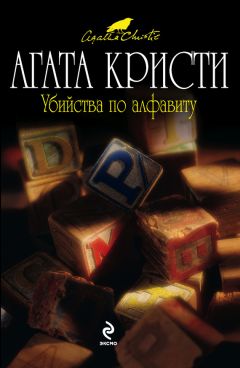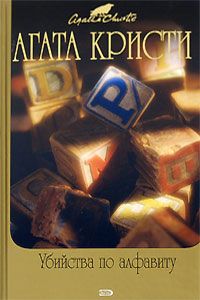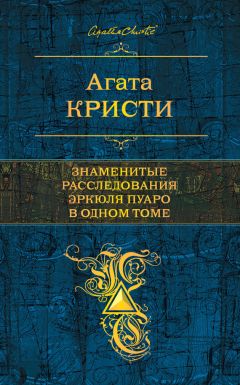Agatha Christie - Английский язык с Агатой Кристи. Убийства по алфавиту
clerk [klɑ:k], tinge [tɪnʤ], jealousy [ˈʤelǝsɪ]
She had not been on terms of intimacy with the dead girl. Elizabeth Barnard, it could be guessed, had considered herself a cut above Miss Higley. She had been friendly in working hours, but the girls had not seen much of her out of them. Elizabeth Barnard had had a "friend" — worked in the estate agents near the station. Court & Brunskill. No, he wasn't Mr. Court nor Mr. Brunskill. He was a clerk there. She didn't know his name. But she knew him by sight well. Good-looking — oh, very good-looking, and always so nicely dressed. Clearly, there was a tinge of jealousy in Miss Higley's bean.
In the end it boiled down to this (это свелось к следующему: «в конце это выкипело к этому»). Elizabeth Barnard had not confided in anyone in the café as to her plans for the evening (Элизабет Барнард не доверилась никому в кафе в отношении своих планов на вечер; to confide — доверять; посвящать), but in Miss Higley's opinion (но, по мнению мисс Хигли) she had been going to meet her "friend" (она собиралась встретиться со своим «другом»). She had had on a new white dress (на ней было новое белое платье), "ever so sweet with one of the new necks (такое миленькое с одним из новых воротничков; sweet — сладкий; милый; neck — шея; ворот, воротник)."
We had a word with each of the other two girls (мы поговорили с остальными девушками: «с каждой из других девушек») but with no further results (но без дополнительных: «дальнейших» результатов). Betty Barnard had not said anything as to her plans (Бетти Барнард не сказала ничего относительно своих планов) and no one had noticed her in Bexhill during the course of the evening (и никто /не/ заметил ее в Бексхилле в течение вечера).
confide [kǝnˈfaɪd], sweet [swi:t], course [kɔ:s]
In the end it boiled down to this. Elizabeth Barnard had not confided in anyone in the café as to her plans for the evening, but in Miss Higley's opinion she had been going to meet her "friend." She had had on a new white dress, "ever so sweet with one of the new necks."
We had a word with each of the other two girls but with no further results. Betty Barnard had not said anything as to her plans and no one had noticed her in Bexhill during the course of the evening.
X. The Barnards
(/семья/ Барнардов)
Elizabeth Barnard's parents lived in a minute bungalow (родители Элизабет Барнард жили в крохотном бунгало; minute — мелкий, мельчайший), one of fifty or so (одного из пятидесяти или около того) recently run up by a speculative builder on the confines of the town (недавно спешно возведенных строителем-спекулянтом на окраине города; to run up — быстро расти; спешно возводить; confine — граница, предел).
The name of it was Llandudno[19] (оно называлось Лландидно: «его имя было Лландидно»).
Mr. Barnard (мистер Барнард), a stout (плотный), bewildered-looking man of fifty-five or so (выглядящий сбитым с толку мужчина /лет/ пятидесяти пяти или около того; to bewilder — смущать, ставить в тупик), had noticed our approach (заметил наше приближение) and was standing waiting in the doorway (и стоял, ожидая в дверном проеме).
"Come in, gentlemen," he said (заходите, джентельмены).
Inspector Kelsey took the initiative (инспектор Келси взял инициативу /в свои руки/). "This is Inspector Crome of Scotland Yard, sir (это инспектор Кроум из Скотланд-Ярда, сэр)," he said. "He's come down to help us over this business (он прибыл помочь нам в этом деле)."
"Scotland Yard?" said Mr. Barnard hopefully (Скотланд-Ярд? — сказал с надеждой мистер Барнард). "That's good (это хорошо). This murdering villain's got to be laid by the heels (этот злодей-убийца должен быть закован в кандалы; to lay down/to lay by the heels — садить в тюрьму; арестовывать). My poor little girl (моя бедная маленькая девочка) —"
bewildered [bɪˈwɪldǝd], initiative [ɪˈnɪʃɪǝtɪv], villain [ˈvɪlǝn]
Elizabeth Barnard's parents lived in a minute bungalow, one of fifty or so recently run up by a speculative builder on the confines of the town.
The name of it was Llandudno.
Mr. Barnard, a stout, bewildered-looking man of fifty-five or so, had noticed our approach and was standing waiting in the doorway.
"Come in, gentlemen," he said.
Inspector Kelsey took the initiative. "This is Inspector Crome of Scotland Yard, sir," he said. "He's come down to help us over this business."
"Scotland Yard?" said Mr. Barnard hopefully. "That's good. This murdering villain's got to be laid by the heels. My poor little girl — "
His face was distorted by a spasm of grief (его лицо было искажено гримасой горя).
"And this is Mr. Hercule Poirot (а это мистер Эркюль Пуаро), also from London (также из Лондона), and er — (и э …)"
"Captain Hastings," said Poirot (капитан Гастингс).
"Pleased to meet you, gentlemen," said Mr. Barnard mechanically (приятно познакомиться с вами, джентельмены, — машинально сказал мистер Барнард). "Come into the snuggery (пройдемте в комнату; snuggery — маленький кабинет; маленькая уютная комната; snug — уютный). I don't know that my poor wife's up to seeing you (не знаю, сможет ли моя бедная жена встретиться с вами; to be up to — быть способным сделать что-либо; to see — видеть; навещать; встречаться). All broken up, she is (она вся разбита /горем/; to break up)."
However (однако), by the time (к тому времени) that we were ensconced in the living room of the bungalow (как нас усадили в гостиной бунгало; to ensconce — прятать/ся/; устраиваться), Mrs. Barnard had made her appearance (появилась миссис Барнард; to appear — появляться; appearance — появление). She had evidently been crying bitterly (она явно горько плакала; bitter — горький), her eyes were reddened (ее глаза были покрасневшими; red — красный) and she walked with the uncertain gait of a person (она шла неуверенной походкой человека; gait — походка, поступь) who had had a great shock (который пережил большое потрясение).
"Why, Mother, that's fine," said Mr. Barnard (ну, мать, все хорошо). "You're sure (ты уверена) you're all right — eh (что ты в порядке, а)?"
mechanically [mɪˈkænɪk(ǝ)lɪ], snuggery [ˈsnʌɡǝrɪ], ensconce [ɪnˈskɔns]
His face was distorted by a spasm of grief.
"And this is Mr. Hercule Poirot, also from London, and er — "
"Captain Hastings," said Poirot.
"Pleased to meet you, gentlemen," said Mr. Barnard mechanically. "Come into the snuggery. I don't know that my poor wife's up to seeing you. All broken up, she is."
However, by the time that we were ensconced in the living room of the bungalow, Mrs. Barnard had made her appearance. She had evidently been crying bitterly, her eyes were reddened and she walked with the uncertain gait of a person who had had a great shock.
"Why, Mother, that's fine," said Mr. Barnard. "You're sure you're all right — eh?"
He patted her shoulder (он похлопал ее /по/ плечу) and drew her down into a chair (и усадил ее в кресло; to draw — тащить).
"The superintendent was very kind," said Mr. Barnard (старший офицер был очень любезен). "After he'd broken the news to us (после того, как он поставил нас в известность), he said he'd leave any questions till later (он сказал, что он оставит любые вопросы на потом) when we'd got over the first shock (когда мы оправимся после первого потрясения; to get over — перейти; оправиться; преодолеть)."
"It is too cruel (это слишком жестоко). Oh, it is too cruel," cried Mrs. Barnard tearfully (о, это слишком жестоко — /со/ слезами вскричала миссис Барнард; tear — слеза). "The cruelest thing (это самая жестокая вещь) that ever was, it is (/из всех/ что когда-либо были, это)."
Her voice had a faintly sing-song intonation (ее голос имел легкую напевную интонацию) that I thought for a moment was foreign (которая, /как/ я на мгновение подумал, была иностранной) till I remembered the name on the gate (пока я /не/ вспомнил название на воротах /дома/) and realized (и /не/ осознал) that the "effer wass" of her speech was in reality proof of her Welsh origin (что это «когдааа-лллибо» в ее речи было, на самом деле, подтверждением ее валлийского происхождения).




